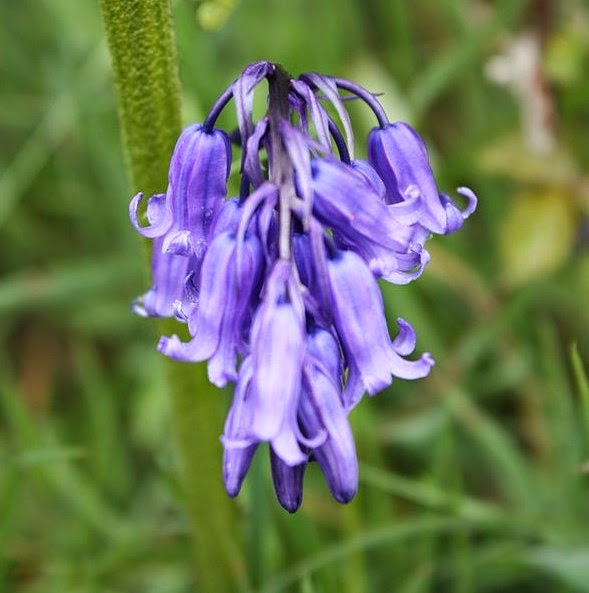Essay published in Spirituality magazine, March/April 2015.
Easter is probably my favourite liturgical time of the year. At some point many years ago, I realised that a wonderful sense of wellbeing and enthusiasm comes over me at this time of year. It is also matched by the warming springtime, longer days, daffodils and bluebells. This sense of wellbeing arrives at Easter, and follows on from a quieter Lenten time of inner transformation and prayerfulness.
I do not think I have ever seen anything more beautiful than the bluebell I have been looking at. I know the beauty of our Lord by it.
Gerard Manley Hopkins
Lent has traditionally been a time of prayer, fasting and helping others (almsgiving), when we engage in a period of renewal, and try in our own way to echo the 40 days our Lord spent in the wilderness, praying, fasting, and being tempted. It culminates at Easter when we take time to meditate on His Passion, and to celebrate His Resurrection.
It is a time of cleansing and sacrifice, of doing without unnecessary luxuries and of consciously trying to give up unhealthy habits and behaviours. Some people decide to give up something specific such as smoking, alcohol, chocolate or sugar, or at least to limit their levels of consumption. Others look towards their actions and try to give up bad habits, negative attitudes, unhelpful thinking or other limiting behaviours. Still others decide to take up a positive habit for Lent – getting more exercise, eating well, helping others, showing random acts of kindness, or offering their time to volunteer at a local organisation.
What I noticed about this season is that even if we find ourselves too busy or too stressed or for any reason unable or uninterested to engage consciously with this renewal, the renewal seems to happen anyway, albeit with probably a little more resistance from ourselves. Life energy is renewing itself, and we all benefit. God, as Life, is emptying us out, clearing out the cobwebs, and preparing for a freshness in our direction, in our thinking, and in our lives. It prepares us for a new beginning. It is an internal time, a time of releasing old and unwanted habits. We are being renewed from within.
This inner renewal can be far from easy. It can be a time of intense frustration, where nothing goes according to plan, and obstacles appear around every corner. It is a time of following, rather than leading. It is a time of sensitivity, of recognising our limitations, our flaws and our compulsions. We can gain great self-awareness during this time, and become wise to our tendencies and habitual reactivity to life. We can also become weary and despairing. This weariness is a good thing, as it makes us reluctantly accept and admit our limitations. Through an inner consent and surrender, we are then more open to welcoming God’s Way into our lives and circumstances.
Fasting has been a tradition in many cultures and religions throughout the centuries, cleansing the body, clarifying the mind, and renewing our spirit. Apart from food, the act of going without can mean abstaining from overindulging in work life, sport, TV, computers, tablets, Facebook and other technology. It can also mean noticing and trying to balance or curb our emotional responses at work and with loved ones, such as losing our patience, getting angry, or falling into despair.
The difficulties we may experience during Lent humble us and make us more aware of our weaknesses and imbalances. Through perseverance and prayer, we are echoing the temptations of Jesus in the wilderness, his prayers to his Father, and his overcoming of the temptations in the desert. We can often feel that parts of us are dying off at this time of year. It is the dying off of the old stale parts of us. It stirs a desire in us for the purity and simplicity of God’s love. It awakens in us a desire for prayer and devotion. We gain patience for the weaknesses of others. We may even find it easier to help others at this time. Through sacrifice, our internal needs are simplified.
By Easter, there is a great forward thrust in life, in nature and within ourselves. The darkness of winter gives way to the light of spring. The land becomes warm, crops are sown and vegetables are planted for the seasons ahead. We notice the quality of light changing, the length of our day, and daylight saving heralds a burst of evening light and activity. We feel back to our old selves, but better, because humility stays with us, and we remain sensitive to others needs. We are more generous with our desires. We want something, but because it benefits more than just ourselves. This season surrounds us with a sense of holiness and goodwill and acceptance of self, others and our circumstances. We are blessed and renewed.
Image from Wikimedia Commons

.JPG)